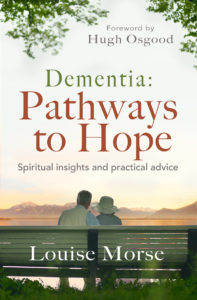 Which is better – happiness or hope? We all wish each other a happy New Year, but what do we mean? At a quick glance we’d say that happiness was better than hope, but would we be right?
Which is better – happiness or hope? We all wish each other a happy New Year, but what do we mean? At a quick glance we’d say that happiness was better than hope, but would we be right?
The power of hope was illustrated recently in a study published by the British medical Journal. Medical researchers in London and Brazil found that patients who were given hope were much more likely to have positive outcomes. The researchers defined hope as “a goal oriented way of thinking that makes an individual invest time and energy in planning how to achieve their aims”.[i]
Hope includes expectancy, and expectancy has a positive effect on the brain. Sukhi Shergill, professor of psychiatry and systems neuroscience at King’s College, London, said: ‘Being treated with a placebo during pain the brain will release opioids, which is the same transmitter as when you take strong painkillers such as codeine or morphine. So the way you send the message [of hope], the person who’s communicating that, changes the expectancy in the patient who’s receiving that, and we know that expectancy changes the brain’s neural transmitter systems.’
In ‘Dementia: Pathways to Hope’ I begin by asking what we mean by hope? It’s a word used in a kind of aspirational way today to mean wishing for an outcome; looking forward to something that may or may not be fulfilled. But ‘hope’ in the biblical sense means more than wishing that something might happen, it’s a kind of confident expectation, of looking forward to something that we know will happen because God is in it. See Hebrews 11: 1-6. In the book I give examples of how expectations have led to amazing outcomes. (If you haven’t read it yet, do get a copy – imbibing hope and building expectation is a good way to start the year!)
So although a happy New Year sounds good, a HOPEFUL New Year would be better!
[i] http://www.telegraph.co.uk/news/2017/12/16/doctors-shouldnt-fear-giving-patients-long-term-medical-conditions/














